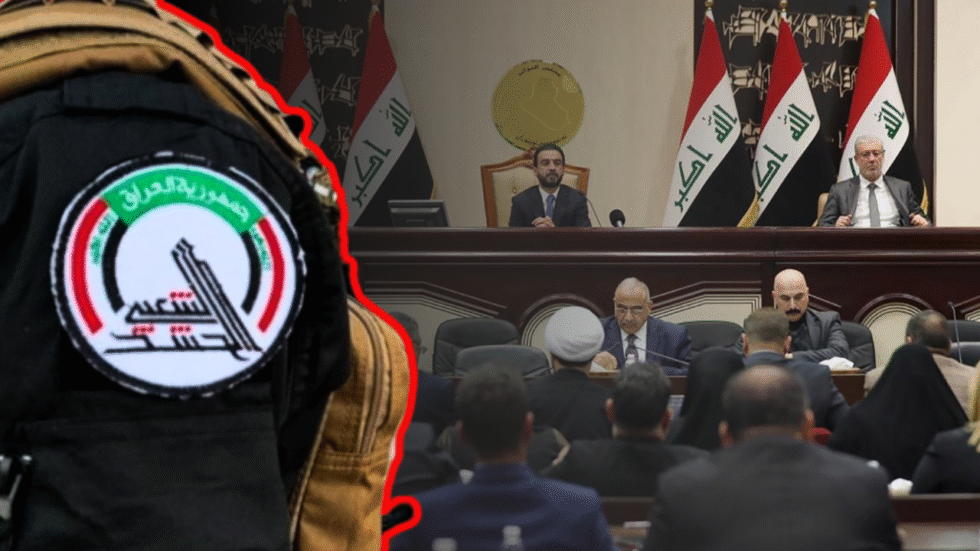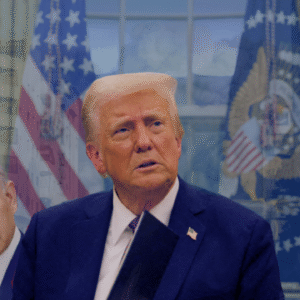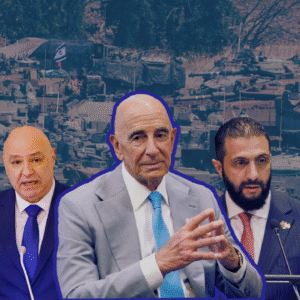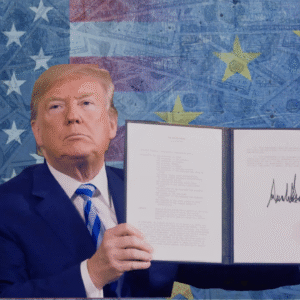Iraqi Government Withdraws PMF Bill After U.S. Pressure, Expected to Disarm

The Iraqi government has officially withdrawn a legislative bill that would have formalized the Popular Mobilization Forces (PMF) as a parallel structure to the Ministry of Defense.
Known as the “PMF Authority Law” and opposed by the U.S., the proposition sought to integrate the fighters’ coalition into the military chain of command, regulating funding and standardizing ranks.
Several members of parliament have accused the government of submitting to U.S. pressures. MP Amir al-Maamouri proclaimed, “Now, there is American pressure, and as a result the political parties have submitted to it.”
U.S. Department of State spokeswoman Tammy Bruce explained the apparent motive for Washington’s disapproval:
“The United States strongly opposes any legislation that is inconsistent with the goals of our bilateral security assistance and partnership and runs counter to strengthening Iraq’s existing security institutions and genuine Iraqi sovereignty.”
Legal Background
The PMF is an umbrella paramilitary organization of over 60 predominantly Shia militias in Iraq. The coalition was officially formed in 2014 to combat ISIS, following Ayatollah Sistani’s fatwa for able-bodied men to defend against terrorist intrusions. After the fall of Mosul, the PMF drew in thousands of combatants, including some from pre-existing militias. Today, it holds more than 200,000 fighters.
In 2016, the Iraqi parliament passed a law that formally recognized the PMF as part of the state’s national security. Yet, it had vaguely outlined its internal regulation, leaving the group with considerable autonomous power within Iraq. PMF operations within the country are not only posed for military protection; the coalition is also a patronage provider amid fragile state welfare.
Existing controversies aimed at the PMF from the coalition’s adversaries are primarily concentrated on its alliance with Iran. Some armed groups have expressed loyalty to the Supreme Leader of Iran, Ayatollah Ali Khamenei. This form of political partnership does not fit under typical sponsor-proxy models, as the ideological relations between Shia groups and the Islamic Jurist are a pivotal aspect of political Shiism.
The PMF Authority Law
The withdrawn legislative bill, which was delayed several times before, has amplified domestic debates among the Iraqi public and its political ranks. Its proposition highlighted national dilemmas between unifying Iraq’s security system and maintaining a pluralistic military status.
Among the bill’s amendments are:
- Unifying military ranking and formal structures
- Formalizing administrative ties to the Ministries of Defense and Finance
- Framing an internal inspectorate for oversight
- Setting military background requirements for PMF leadership
- Forming internal military councils
- Budgeting unique financial entitlements for specific units
Like in any pluralistic state, domestic disputes around the bill had hampered consensus, even within the Shia “Coordination Framework”—the Iran-backed umbrella organization of Shia blocs backing the current government.
Although the proposed law aimed to refine the PMF’s stance within state institutions, critics have argued that it legitimizes PMF administrative independence and integrates Iran-aligned factions within Iraq’s military. Even Sunni and Kurdish seats in parliament remain divided, with opponents fearing an imbalance of power in the confessional representation.
External actors have joined the chorus of criticism, yet such foreign demands undermine the very foundations of democratic discourse.
U.S. Pressures and Threats
The U.S. had been a prominent cause for the delays and the resulting withdrawal of the legislative bill from parliament. In July 2025, U.S. Secretary of State Marco Rubio called Iraqi Prime Minister Mohammed al-Sudani to describe the legislation as “deeply concerning.”
The U.S. position consistently warned against institutionalizing “terrorist groups” classified by the state department. Reiterating the common “sovereignty mantra,” Rubio claimed the law would intensify Iranian influence that undermines Iraqi sovereignty and jurisdiction.
On Aug. 4, 2025, the Washington Institute for Near East Policy published a report authored by David Schenker, an American diplomat who previously worked for the Department of Defense during the George W. Bush administration and as Assistant Secretary of State for Near Eastern Affairs.
Schenker’s analysis underscores the U.S.’s reliance on coercive diplomacy, using its security partnerships as leverage to maintain control and enforce compliance from regional actors like Iraq.
PM al-Sudani, on several occasions, defended the legislative initiative notwithstanding U.S. pressure. His government, however, encountered a political dilemma. Despite being supported by the Coordination Framework, Baghdad ultimately avoided antagonizing Washington under a fragile economic state and financial strain with international organizations.
This phenomenon is a repeated pattern among states subjected to American power in return for psuedo-economic stability. American-style diplomacy strips inter-state dialogue from its foundational principles of negotiation and sovereignty. Rather than presenting the weaker party with a choice, the economically-challenged state is met with an ultimatum: to comply with foreign interests or face the consequences of sanctions and, perhaps, military action.
Regional Patterns
Washington has previously expressed hopes towards the PMF’s disarmament. The motive lies within a broader plan for a “New Middle East,” a slogan long used by Israeli and American leaders, and now amplified in the aftermath of Oct 7. As part of U.S.-Israeli relations, America has sought to bolster the Zionist project by fighting organizations across West Asia—including, but not limited to, Hezbollah and Ansarullah.
While similarities exist between the pressures faced by Hezbollah and the PMF, their respective situations remain considerably distinct. Unlike the Lebanese group, the PMF does not border Israeli-occupied territories and has not directly engaged with Israel. Its efforts are primarily geared towards terrorist incursions from Syria.
Although opposition does exist in both countries, there is a clear agreement between the Iraqi government and the coalition, while the political coexistence between the Lebanese state and Hezbollah is more fragile. The Lebanese state continues to not only face, but succumb to U.S. pressures to dismantle Hezbollah and retain full control of arms.
Passing the bill would have created a much harder battle for the U.S. in Iraq than in Lebanon. The latter’s president and PM have directly confronted the resistance group, passing a law for its complete disarmament by the end of 2025.
In Iraq, support for the PMF is more strongly formalized, with a strong Shia bloc entrenched in the government. Geographical boundaries make the PMF less of a threat than Hezbollah, which challenges the legitimacy of the U.S. position.
Amidst these developments, Israel’s foreign policy post-Oct. 7 has adopted a security creed rooted in the ideals of David Ben Gurion. This approach adopts a method of traditional deterrence—attacking enemies pre-emptively with full force and stripping them of any defensive capabilities, regardless of their intentions.
This also manifests in other neighboring countries such as Syria, where Israel has actively enforced a dynamic of occupation, expansion, and demilitarization.
Dilemmas over Iraq’s PMF therefore reflect these wider regional patterns, and point to the enduring weight of U.S. pressure in shaping not only Iraq’s security landscape, but also the broader balance of power across West Asia, which keep the U.S.-Israeli bloc and the resistance axis at loggerheads.
If you value our journalism…
TMJ News is committed to remaining an independent, reader-funded news platform. A small donation from our valuable readers like you keeps us running so that we can keep our reporting open to all! We’ve launched a fundraising campaign to raise the $10,000 we need to meet our publishing costs this year, and it’d mean the world to us if you’d make a monthly or one-time donation to help. If you value what we publish and agree that our world needs alternative voices like ours in the media, please give what you can today.












